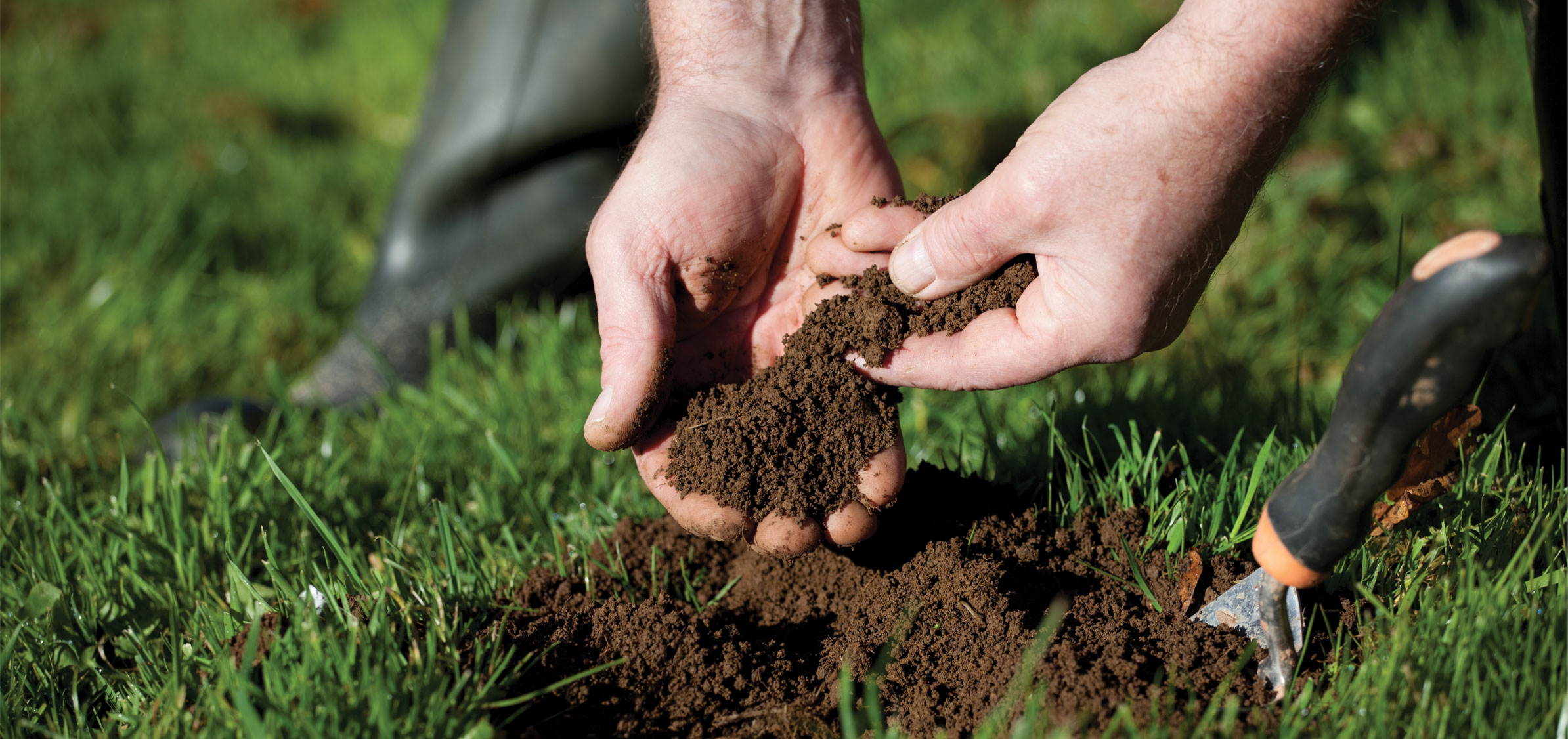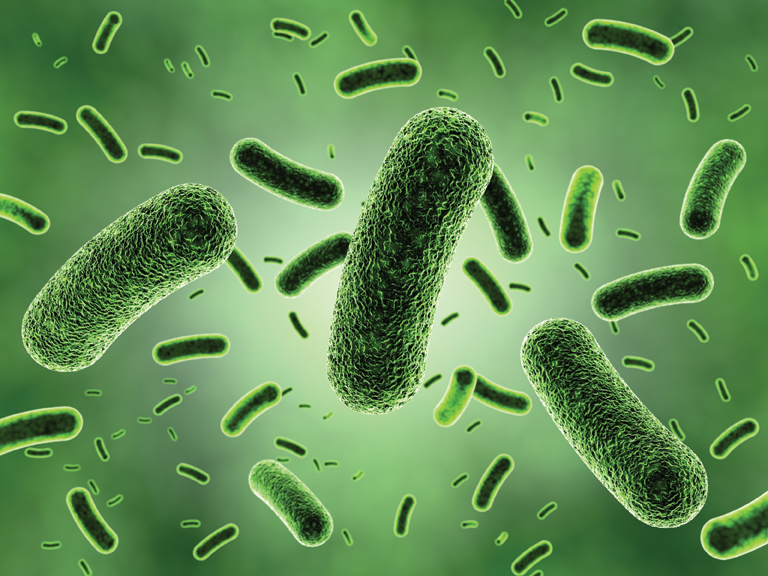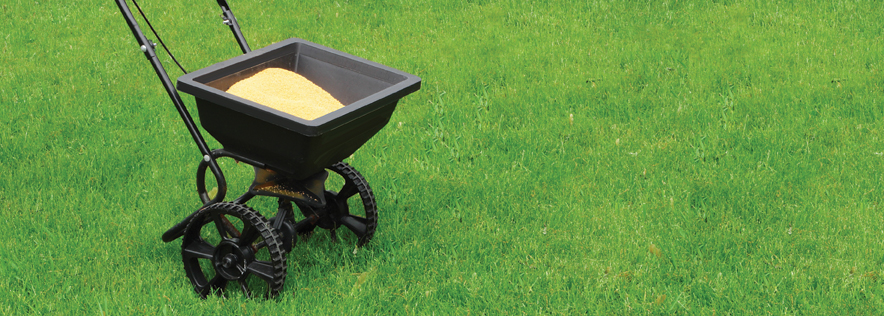
DETONATION – An Aid to Plant Health
The Sanctuary works with Probiotics to deliver a wide range of soil health benefits. The Sanctuary products contain a variety of natural protein and carbohydrate ingredients. These ingredients are rich in nutritional energy to feed and stimulate the native soil microbial system. These nutritional energy sources mimic the root exudates and metabolites found in the soil. Therefore, the Sanctuary products help to build back this natural microbial food source. By adding these food sources to the soil, this enhances soil and plant health.
The Sanctuary adds “Probiotics” to some of the Sanctuary fertilizer products. These probiotics deliver the next dimension to soil and plant health. The Sanctuary uses a select group of “Plant Friendly Probiotics” to reduce some of the common repetitive nutrient deficiencies and common agronomic issues. The Sanctuary has selected probiotic packages that help with water and nutrient conservation plus a wide range of other soil health benefits. Listed is an overview of the various probiotic products that we add to our fertilizers. These probiotics deliver more than a natural fertilizer component to the soil. Simply, the Sanctuary continues to provide our customers with new natural solutions to common agronomic problems.
Detonation Fertilizer Bio Catalyst: A New Fertilizer Microbial Inoculants
Detonation Descriptive Overview
Detonation is a family of pharmaceutical grade probiotics that is a “Nutrient Delivery System.” Using only pharmaceutical cultured microbes, this guarantees batch consistency year after year. The key to this product is the multiple microbial strains and their interaction in delivering nutrients. Detonation will mineralize nutrients locked in the soil plus build soil microbial health.
Detonation microbes are cultured together, and these microbes are harvested along with the fermentation medium. This solution contains the natural secondary metabolites (enzymes, proteins, carbohydrates and organic acid) found in Detonation. It’s this combination of probiotics diversity and metabolites that deliver the Detonation Difference.
How does the product work? Detonation microbes produce a broad range of soil enzymes & metabolites. These nutritional materials help with soil microbial colonization. It’s this “Bio Catalyst” approach that helps to mineralize these stored nutrients locked in the soil. Detonation helps with nutrient availability to the plant. Simply, microbial counts are important but microbial interaction is the key.
Detonation Family Selection: A New Category of Microbial Inoculants
With Detonation, our emphasis is placed on the diversity of metabolic capabilities of the microbe strains found in the Detonation mix, rather than on microbial counts. Our focus is on the interaction benefits of this wider range of probiotic stains. In addition, Detonation uses only pharmaceutical cultured microbes that guarantee batch consistency. What you add is more important than how much you add.
Microbes with a broad metabolic profile are selected for inclusion into the Detonation product line. Having a broad metabolic capability allows the microbes to metabolize a wider range of food sources. This design approach promotes soil colonization. This unique design enhances nutrient mineralization and phosphorus solubilization increasing nutrient availability to the plant.
Detonation microbes are cultured together, and these microbes are harvested along with the fermentation medium. This solution contains the natural exuded secondary metabolites (enzymes, proteins, carbohydrates and organic acid). It’s these metabolites with all the nutritional sources found in the Detonation family of products.
It’s Probiotic Diversity that is the key Detonation Difference!!!
Common Biological Terms
Metabolites are intermediate catalysis for the production of key soil enzymes
Enzymes improve nutrient uptake while enhancing plant stress tolerance
Bio Catalyst speeds up the natural enzymatic processes to enhance biological chemical reaction and performance
Prebiotics is food to help colonize probiotics in the soil for building soil health
Probiotics are live microorganisms that provides benefits to restore soil biological activity to plants
Microbes is wide range of microscopic organism found native in the soil
SANCTUARY DETONATION
The Sanctuary Detonation is a liquid probiotic package, which can be applied to both organic and chemical fertilizer products. This liquid probiotic product contains a wide range of beneficial bacteria and fungi, which includes a rich nutritional food source. This food source contains carbohydrates, metabolites and exudates. This nutritional package helps to explode the native microbial populations plus promotes colonization of these various strains. This broad spectrum of microbial inoculants can be added to any fertilizer or calcium product. Or, this product can be applied as a standalone liquid spray to enhance overall nutrient efficiencies and build soil microbial life.
BENEFITS
- Delivers a Broad Spectrum of Microbial Inoculants to Enhance Fertilizer Efficiencies
- Reduces the Need For Supplemental Fertilizer Applications
- Solubilizes & Mineralizes Nutrients For Plant Availability
- Enhances Plant Growth and Improves Rooting & Density
- Promotes Microbial Proliferation & Colonalization in the Soil Rhizosphere

APPLICATION RATES
| APPLICATION | AMOUNT | COVERAGE | NOTES |
| Dry Fertilizer Impregnation | 2 – 4 Quarts | Ton | Fertilizer composition will effect absorption rate |
| Tank Mixing With Liquid Fertilizers | 2 – 4 Quarts | Acre | Perform Jar Test, Tank pH range 5 – 9 |
| Agricultural Starter – Stand Alone | 1 – 2 Quarts | Acre | Utilize early in crop cycle to promote establishment |
| Agricultural Side Dress-In Furrow | 1 – 2 Quarts | Acre | Utilize at time of planting seed or sprig |
| Agricultural Broadcast | 2 – 4 Quarts | Acre | Apply monthly for optimum results |
| Vegetable Gardens | 1.5 -3.0 oz | 1000 sq ft | Apply as soil drench on a monthly basis throughout growing season for optimum results |
| Ornamental Installation – Transplant | 1 – 2 oz | Gal Water | Soak root ball prior to back filling hole |
| Ornamental Maintenance | 2 – 4 Quarts | Acre | Apply as soil drench monthly for optimum results |
| Ornamental Plants | 1.5 – 3.0 oz | 1000 sq ft | Apply as soil drench on a monthly basis throughout growing season for optimum results |
| Tropical Plants | 2.0 – 3.0 oz | 1000 sq ft | Apply as soil drench on a monthly basis throughout growing season for optimum results |
| Flower Gardens | 1.5 -3.0 oz | 1000 sq ft | Apply as soil drench or sprench throughout growing season on a monthly basis for optimum results |
| Bulbs | 1 oz in 1 gal water | 16 bulbs | Soak bulbs with solution at time of planting. Utilize
8 oz solution per average sized bulb |
| Compost Activator – Bins | 2 oz in 1 gal water | 50 gal | Spray solution on to compost and tumble bin
Utilize 1 gal solution per 50 gal compost bin capacity |
| Compost Activator – Piles | 2 oz in 1 gal water | 10 Cubic Foot | Spray solution on to compost and turn pile
Utilize 1 gal solution per 10 cubic foot of compost |
| Greens & Tees | 4 – 8 Quarts | Acre | Apply every 2 – 4 weeks for optimum results |
| Fairways & Sports Turf | 3 – 6 Quarts | Acre | Apply every 4 weeks for optimum results |
| Turf | 2.0 – 4.0 oz | 1000 sq ft | Apply as soil drench on a monthly basis throughout growing season for optimum results |
| Greenhouse Injector @ 1 : 100 | 2 Quarts | 10,000 sq ft | Apply every 4 weeks for optimum results |
| Irrigation Injection | 2 – 4 Quarts | Acre | Dilute liquid fertilizer 1 : 1 prior to tank mixing |
| Manure Application (Per 3,000 gal) | 2 – 4 Quarts | Acre | May be tank mixed or injected directly into line |
STORAGE & HANDLING
* Product should be stored in a cool, well ventilated area out of direct sunlight.
* Store between 40O F – 90O F to optimize shelf life. Do not allow product to freeze
* Keep container tightly sealed. When stored properly product has 2 year shelf life* Refer to SDS for Details
MIXING & PACKAGING DETONATION CONCENTRATE
It is important to maintain good hygiene with the handling, mixing and storage of Detonation to avoid cross-contamination of the product. Listed are common sense recommendations to use to avoid problems.
- To avoid any product contamination, put on a clean pair of latex gloves before handling the drum or tote. This will avoid the transfer of any dirt or native bacteria into mixer or blender. Make sure the blender is clean of dirt and any dust.
- To remove any dust from the concentrate container, wipe down the container with a clean rag and wash with hot water around the drum lid or tote drain.
- Open product container and insert sterilized transfer pump. Once transference is complete, immediately replace cap and secure tightly. Make sure the cap is clean prior to replacement. Run under hot water is suggested prior to replacement.
- After use, tightly secure the container lid. This will minimize the free movement of air into container that could activate the remaining Detonation concentrate. A tight lid is critical as the Detonation level decreases in the container.
- Once lid is secured, thoroughly wipe down the drum lid with a 2% solution of bleach and water. Do not get this cleaning solution into the container. It may compromise the product. Allow solution to air dry completely before opening.
- Make sure the pump used to transfer Detonation into blender is cleaned with a 2% solution of water and bleach. After the use of the bleach solution rinse with clean hot water. Let dry.
- Wash with hot water all the parts of the pump to remove any remaining product from pump. Once pump is rinsed thoroughly, store the pump in a clean, dry place. It is recommended to rinse the pump prior to the next use.

SANCTUARY 3-3-4, SANCTUARY 3-0-20 & SANCTUARY 11-21-21
These are natural based biological fertilizers for a wide range of landscape installation and maintenance applications. These difference products contain energy rich organic fertilizer components that naturally deliver the NPK nutrients to the plant. These products provide a non-burning nutrient release that aids with root regeneration and plant establishment at time of installation. Plus, these products are an excellent maintenance product for annual & perennial flowers, ground covers and ornamental trees & shrubs in color beds. Lastly, this product contains a broad group of beneficial soil bacteria and fungi to enhance biological soil activity to aid with the release of these organic nutrient ingredients.
Benefits:
- Delivers a Natural Residual Fertilizer for Turf and Ornamental Plant Maintenance.
- Enhances Root Stimulation and Plant Growth for New Planting, Seeding or Sodding.
- Delivers a Non-Burning Organic Fertilizer for Any Type of Turf or Plant Installation.
- Stimulates and Builds the Native Microbial Populations Reducing Agronomic Problems.
- Releases Nutrients that are Tied Up in the Soil.
- Reduces Transplant Shock and Enhances Over Establishment.
- Contains Beneficial Bacteria that Promotes Turf & Plant Health.


PROBIOTIC BENEFITS
SANCTUARY PROBIOTIC OVERVIEW
GENUS: BACILLUS (BACTERIA)
Bacillus Subtilis
- Endospore forming bacteria (extremely hardy organisms)
- Grow on many carbon and nitrogen substrates (versatile metabolisms)
- Produce large colonies in soil profile over time (prolific)
- Produce plant growth regulatory compounds (PGR) which stimulate plant growth
- Produces numerous enzymes & organic acids (promotes nutrient cycling, nutrient solubilization & nutrient mineralization, including phosphorous)
- Produce polysaccharides which creates micro-aggregates in soil profile (enhances soil structure)
- Contains select strains capable of stimulating Induced Systemic Resistance (ISR)
- Provides increased resistance to abiotic stress (heat, cold, drought, foot traffic)
- Contains select strains capable of enhancing photosynthetic capacity of plants
Bacillus Firmus
- Endospore forming bacteria (extremely hardy organisms)
- Grow on many carbon and nitrogen substrates (versatile metabolisms)
- Produce large colonies in soil profile over time (prolific)
- Produce plant growth regulatory compounds (PGR) which stimulate plant growth
- Produces numerous enzymes & organic acids (promotes nutrient cycling, nutrient solubilization & nutrient mineralization, including phosphorous)
- Produce polysaccharides which creates micro-aggregates in soil profile (enhances soil structure)
- Contains select strains capable of stimulating Induced Systemic Resistance (ISR)
- Provides increased resistance to abiotic stress (heat, cold, drought, foot traffic)
- Contains select strains capable of enhancing photosynthetic capacity of plants

Bacillus Amyloliquefaceins
- Endospore forming bacteria (extremely hardy organisms)
- Grow on many carbon and nitrogen substrates (versatile metabolisms)
- Produce large colonies in soil profile over time (prolific)
- Produce plant growth regulatory compounds (PGR) which stimulate plant growth
- Produces numerous enzymes & organic acids (promotes nutrient cycling, nutrient solubilization & nutrient mineralization, including phosphorous)
- Produce polysaccharides which creates micro-aggregates in soil profile (enhances soil structure)
- Contains select strains capable of stimulating Induced Systemic Resistance (ISR)
- Provides increased resistance to abiotic stress (heat, cold, drought, foot traffic)
- Contains select strains capable of enhancing photosynthetic capacity of plants
Bacillus Licheniformis
- Endospore forming bacteria (extremely hardy organisms)
- Grow on many carbon and nitrogen substrates (versatile metabolisms)
- Produce large colonies in soil profile over time (prolific)
- Produce plant growth regulatory compounds (PGR) which stimulate plant growth
- Produces numerous enzymes & organic acids (promotes nutrient cycling, nutrient solubilization & nutrient mineralization, including phosphorous)
- Produce polysaccharides which creates micro-aggregates in soil profile (enhances soil structure)
- Contains select strains capable of stimulating Induced Systemic Resistance (ISR)
- Contains select strains capable of enhancing photosynthetic capacity of plants
Bacillus Pumilus
- Endospore forming bacteria (extremely hardy organisms)
- Grow on many carbon and nitrogen substrates (versatile metabolisms)
- Produce large colonies in soil profile over time (prolific)
- Produce plant growth regulatory compounds (PGR) which stimulate plant growth
- Produces numerous enzymes & organic acids (promotes nutrient cycling, nutrient solubilization & nutrient mineralization, including phosphorous) Prolific protease & amylase producer
- Produce polysaccharides which creates micro-aggregates in soil profile (enhances soil structure)
- Contains select strains capable of stimulating Induced Systemic Resistance (ISR)
- Contains select strains capable of enhancing photosynthetic capacity of plants
Paenibacillus Durum (formerly Bacillus Azotofixans)
- Endospore forming bacteria (extremely hardy organisms)
- Grow on many carbon and nitrogen substrates (versatile metabolisms)
- Produce large colonies in soil profile over time (prolific)
- Free living nitrogen fixing organisms (convert atmospheric N2 >> into plant available NH3)
- Produce plant growth regulatory compounds (PGR) which stimulate plant growth
- Produces numerous enzymes & organic acids (promotes nutrient cycling, nutrient solubilization & nutrient mineralization, including phosphorous)
- Produce polysaccharides which creates micro-aggregates in soil profile (enhances soil structure)
- Contains select strains capable of stimulating Induced Systemic Resistance (ISR)
Paenibacillus Polymyxa (formerly Bacillus Polymyxa)
- Endospore forming bacteria (extremely hardy organisms)
- Grow on many carbon and nitrogen substrates (versatile metabolisms)
- Produce large colonies in soil profile over time (prolific)
- Produce extra-cellular polysaccharides (important for soil structure)
- Free living nitrogen fixing organisms (convert atmospheric N2 >>> into plant available NH3)
- Produce plant growth regulatory compounds (PGR) which stimulate plant growth
- Produces numerous enzymes & organic acids (promotes nutrient cycling, nutrient solubilization & nutrient mineralization, including phosphorous)
- Produce polysaccharides which creates micro-aggregates in soil profile (enhances soil structure)
- Contains select strains capable of stimulating Induced Systemic Resistance (ISR)
- Provides increased resistance to abiotic stress (heat, cold, drought, foot traffic)
GENUS: STREPTOMYCES (ACTINOMYCETES)
Streptomyces Griseus
- Filamentous spore formers
- Prolific enzyme producer (promotes nutrient cycling)
- Produce plant growth promoting compounds (PGR) which stimulate plant growth
- Contains select strains capable of stimulating Induced Systemic Resistance (ISR)
- Provides increased resistance to abiotic stress (heat, cold, drought, foot traffic)
Streptomyces Lydicus
- Filamentous spore formers
- Prolific enzyme producer (promotes nutrient cycling)
- Produce plant growth promoting compounds (PGR) which stimulate plant growth
- Contains select strains capable of stimulating Induced Systemic Resistance (ISR)
- Provides increased resistance to abiotic stress (heat, cold, drought, foot traffic)
GENUS: TRICHODERMA (FUNGI)
Trichoderma Harzianum
- Filamentous rhizobial soil fungi
- Extremely efficient at producing the enzyme cellulase (contributes to nutrient cycling)
- Provides increased resistance to abiotic stress (heat, cold, drought, foot traffic)
- Solubilizes phosphorous in the soil
Trichoderma Reesei
- Filamentous rhizobial soil fungi
- Extremely efficient at producing the enzyme cellulase (contributes to nutrient cycling)
- Provides increased resistance to abiotic stress (heat, cold, drought, foot traffic)
- Solubilizes phosphorous in the soil

MICROBIAL SYNERGISTS
Dextrose: microbial food source, supplements plants increased sugar requirement during flowering phase
Sucrose: microbial food source, supplements plants increased sugar requirement during flowering phase
Maltodextrin: microbial food source, supplements plants increased sugar requirement during flowering phase
L – Amino Acids: utilized by beneficial organisms to drive metabolic function. Contains high levels of L-Cystene, L-Glycine, L-Glutamate to facilitate the production of Glutathione a potent abiotic stress reducer. Additionally it contains high levels of L – Tryptophan to facilitate production of Indole Acetic Acid (IAA), a natural phyto-hormone responsible for triggering flowering mechanism
Brewers Yeast Extract: rich in vitamins & minerals essential for microbial growth and proliferation during the critical early stage of inoculation
Potassium Humate: recalcitrant carbon source specifically designed to feed beneficial soil fungi.
Kelp (Seaweed Extract): rich in alginates, amino acids, minerals and vitamins, which promote microbial growth & proliferation.
